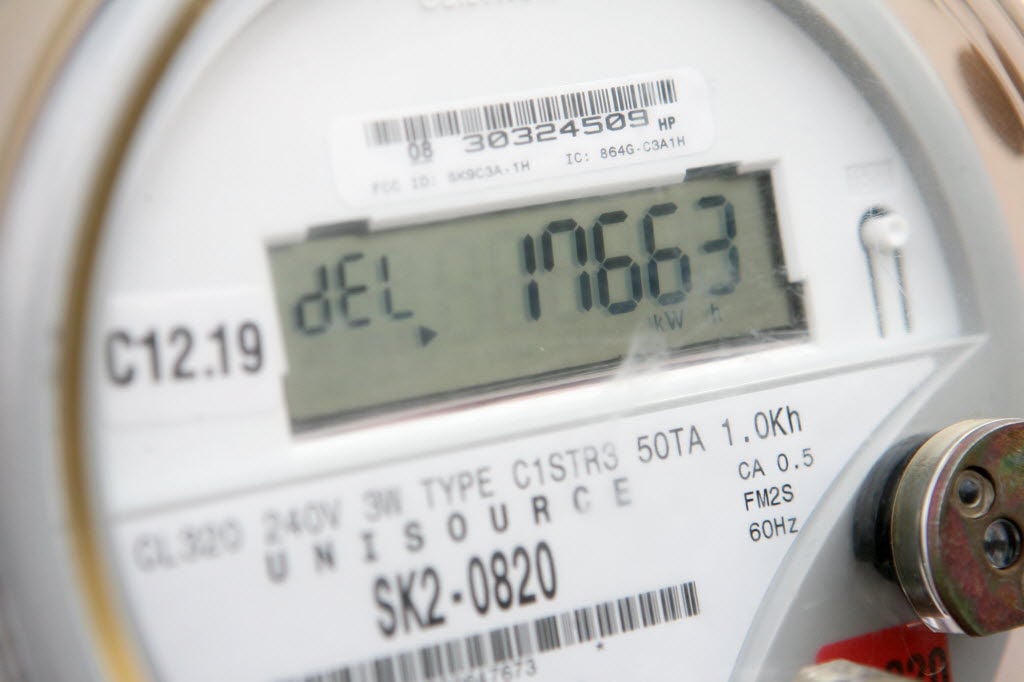A rate case that could become a bellwether for changing how most Arizonans pay for electricity is coming to a head this week.
The Arizona Corporation Commission will consider a rate request filed by rural provider UNS Electric at its next open meeting in Phoenix starting Tuesday, in a case that is being closely watched for the precedents it may set for other utilities — and for its impacts on customers, particularly low-income families.
UNS Electric, a sister company of Tucson Electric Power Co. that serves Santa Cruz and Mohave counties, had initially proposed higher basic charges and other rate changes that would raise the typical home customer’s monthly bill by $8.10, or 9.5 percent.
The utility also wants to cut the rate at which it credits customers with rooftop solar systems for excess energy production, and force customers who install solar after June 2015 on so-called demand rates, which include a charge for peak hourly energy usage.
UNS has dropped its support for a proposal floated earlier by the Corporation Commission’s own staff, recommending that all home and small-business customers be put on rates with demand charges.
That proposal elicited a storm of opposition during hearings from customers and consumer advocates who contended demand rates are not well understood by customers and would lead to skyrocketing bills.
In late July, a Corporation Commission administrative law judge issued a proposed order recommending that UNS Electric’s rate request be slashed by more than half, boosting the average residential customer’s bill by an estimated $2.36, or 2.7 percent, including a smaller increase in the basic monthly residential charge, to $13 from $10 instead of the increase to $15 UNS had requested.
Judge Jane Rodda rejected the move to demand rates and instead recommended that all UNS home and small-business customers be transitioned to default time-of-use rate plans, which feature higher rates for peak demand periods and lower rates for off-peak times.
Rodda also proposed putting off reductions to the reimbursement rate for excess power produced by solar customers and forcing solar customers on demand rates, until an ongoing commission proceeding examining the value of solar is completed.
In response to the judge’s recommended order, UNS in a filing last week said it was not opposed to putting customers on time-of-use rates, but it opposed the judge’s plan of moving all customers to such rates after a transition period.
Instead, UNS proposed keeping customers on their current rates and adding new time-of-use rate options and incentives.
After a customer-education campaign, UNS said, monthly basic service charges on current, two-part rates would be upped to $15 for residential customers and $20 for small-business ratepayers, to encourage customers to switch to time-of-use rates.
All new customers would be put on time-of-use rates starting in March, under the UNS proposal.
UNS also objected to the judge’s proposal to increase rates paid by UNS’ four largest customers, contending they already subsidize smaller users.
In a response to the hearing judge’s recommendations, the Arizona Residential Utility Consumer office said it agreed with most of the hearing officer’s plan but suggested setting up a schedule of declining credits to solar customers as UNS incrementally meets its annual renewable-energy mandates.
The state watchdog agency agreed with shifting customers to time-of-use rates but suggested a higher fixed charge for those staying on traditional rates and a lower monthly charge for time-of-use customers to give consumers more incentive to switch.
The Arizona Community Action Association said time-of-use rates could hurt many low-income families who can’t easily alter their energy use patterns, including the homebound, seniors and households with members working various shifts.
Solar groups including the industry-backed Alliance for Solar Choice generally applauded the hearing judge’s recommendations and backed her proposal to grandfather existing solar customers from the time the rates become effective.
For its part, Arizona Public Service reiterated its support for rates with demand charges — which it’s seeking in its own rate case the company filed in June — and said time-of-use rates don’t help offset a cost shift the utility says unfairly benefits customers with rooftop solar at the expense of non-solar ratepayers.
APS also says it opposes any delay in revamping solar net metering policies and excess-energy reimbursement rates for solar customers.
In other pending rate cases, TEP, Arizona Public Service, the Trico Electric Cooperative and the Sulphur Springs Electric Cooperative have all have moved to raise fixed charges and cut solar energy credit rates.





